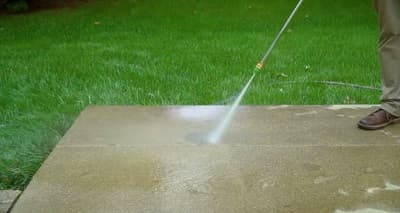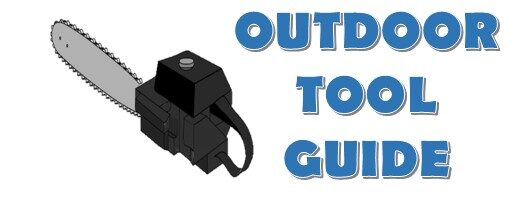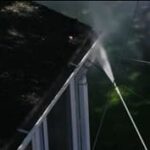As an Amazon Associate, this site earns commissions from qualifying purchases. For more information click here.
A pressure washer is a convenient tool for cleaning driveways, vehicles, sidewalks and roofs among other things. It is widely used in residential and commercial establishments, but what kind of equipment is it? Would it be accurate to call a pressure washer a power tool?
A pressure washer is considered a power tool because it runs on a fuel engine or electric motor. Any equipment that requires another power source apart from manual is classified as a power tool.
That in a nutshell is why a pressure washer is regarded as a power tool. But there is a lot more to this than a simple definition. This might seem trivial but knowing how pressure washers are classified gives you a deeper insight into how they work.
Why Pressure Washers are Power Tools
To make things clearer, let us look at how a power tool is determined, and you will see that a pressure washer fits the definition.
At its most basic, a power tool is any tool that needs an additional source of power to run apart from manual labor. A hammer for example, is a hand tool. You just need your hands to use it. The same with a shovel and a rake.
A power tool however, cannot run on manual labor. It needs an electric motor, compressed air, combustible engine etc. to work.
Pressure washers fit this definition. There are basically two types, electric and gas, but the principles are the same. Water is supplied to the pressure washer, then a fuel engine or electric motor runs the system.
The engine or motor powers a water pump which pulls water in and expels it through the hose. Thee narrow nozzle increases pressure so water comes out forcefully.

The tool uses force to spray water, which is similar to what a garden hose does. But pressure washers are more efficient. The high pressure means water can remove dirt more effectively than hose. This also means you save up to 80% more water since a small volume is enough to produce high pressure.
Most pressure washers spray cold water, though some commercial models produce hot water. You can also mix water with soap or detergents and use a foam cannon. This is a very useful feature especially when pressure washing a car.
Portability. Power tools are portable and that applies to pressure washers too. Large, gas powered models are still available, but now you can get rechargeable pressure washers too. There are stationary power tools for heavy duty use and that is applicable to pressure washers as well.
Do Pressure Washers Work Like Power Tools?
So based on the description, pressure washers seem to have a lot in common with power tools. But does it actually work like one of them?
There are many types of power tools and they operate differently. But all of them require an energy source apart from your hands. Sources range from internal combustion engines, electric etc.
There are many types of pressure washers, but they are all classified as power tools. The following video shows how pressure works. If you want to a more detailed description of the process, keep reading.
A pressure washer runs on gas or electric power. A gas pressure washer may be a 2-stroke or 4-stroke system, and there are many types of electric models. A pressure washer uses an electric motor pump a fuel powered engine. The motor or engine is what allows the pump to draw and release water with force. The pressure comes from the way the pump speeds up the water.
A pressure washer is joined to a hose. A water gun is hooked up to the end of the hose. When you squeeze the trigger, the water emerges from the tip. The water can also be mixed with soap and other detergents for cleaning.
You can adjust the pressure on a pressure washer by replacing the nozzle or adjusting a valve. Pressure is measured in PSI and water volume in GPM. What makes a pressure washer such an effective power tool is the amount of control you have.
You can apply 2000 PSI or higher for dirt caked on hard surfaces for quick removal. Pressure washers have as much as 70 times more force than a garden hose, which allows you to use less water but be more efficient.
Gas vs. Electric Pressure Washers
Electric pressure washers are ideal for light to medium duty cleaning. They run off electricity so you don’t have to worry about being out of power. These are quiet and lighter than gas models, which makes them ideal for a lot of applications.
Gas pressure washers are more powerful and made for heavy duty cleaning. Most electrical pressure washers are in the 1200-3000 PSI range, but gas models up to 4000 PSI are available. If you need one, we suggest going with the Simpson PS60843 PowerShot 4400 PSI Gas Pressure Washer as it is powerful and dependable.
Higher PSI is great for removing stubborn or hard to reach dirt. But too much pressure can damage surfaces or remove paint. Before you buy a pressure washer, determine which type is best suited for your needs.
Electric pressure washer pros and cons:
| Pros | Cons |
|---|---|
| Quiet | For light cleaning jobs only |
| Low maintenance | Washing takes more time than gas models |
| Portable | Movement is limited by cord length |
| Costs less than gas pressure washers | Can only be used near a power outlet |
| Easy to use | Cannot be used in rainy conditions |
| No need to buy gas | Lower pressure than gas |
Gas pressure washer pros and cons:
| Pros | Cons |
|---|---|
| More powerful than electric pressure washers | Heavy |
| Cleans faster | Needs more maintenance than electric models |
| Higher PSI and GPM | Requires fuel, an additional expense |
| More durable | Noisy |
| Can be used in any weather | More expensive than electric models |
| Available in wheeled frames for portability | Carries risks of any fuel powered device |
So both have their advantages and disadvantages. In the end it comes down to your personal needs. Take careful note of the objects you have to clean. Now use that as a guide to determine which type of pressure washer to use.
Frequently Asked Questions
What is more effective as a power tool, electric or gas pressure washers?
It depends on the task you have to do. For general cleaning and maintenance, electric pressure washers are fine. If you need heavy duty cleaning, a gas pressure washer is the better option.
What is the difference between a pressure washer and a power washer?
The biggest difference between the two is a pressure washer uses cold water and a power washer releases hot water. But the distinction between the two is getting blurred as many pressure washers now offer hot water support. Manufacturers also use the terms interchangeably though there are sill some differences between them.
How much pressure can a pressure washer supply?
There are gas pressure washers that generate more than 4000 PSI. These levels are rarely if ever used at home. Most cars, driveways, concrete surfaces can only handle up to 2000 PSI. That should be enough to remove dirt. If that is what you need, the Westinghouse WPX3200 will get the job done.
How long does a pressure washer last?
Most manufacturers guarantee at least 500 hours of use. With care a gas pressure washer can last for ten years or more. It depends on how well it is maintained and what kind of conditions it is subjected to.
Does a pressure washer use a lot of water?
Pressure washers consume less water than a regular garden hose. It appears as if more water is coming out of a pressure washer due to the force. But it is actually less. So if you want to save on water and wash that car faster, a pressure washer is ideal.
How much PSI should I use for my pressure washer?
For home use, 1200-1900 PSI is just about right. That range should allow you to wash and clean almost anything without causing damage. The GPM can be between 1.3-1.8 GPM. With PSI and GPM, always start at the low level and increase only if necessary.

I love the outdoors and all the tools for maintaining gardens, yards and lawns. The only thing I am more passionate about is sharing what I know about garden and outdoor equipment.


